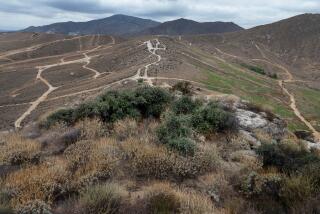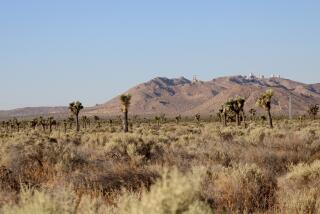Worries mount in Yucca Valley that Joshua trees will be designated an endangered species
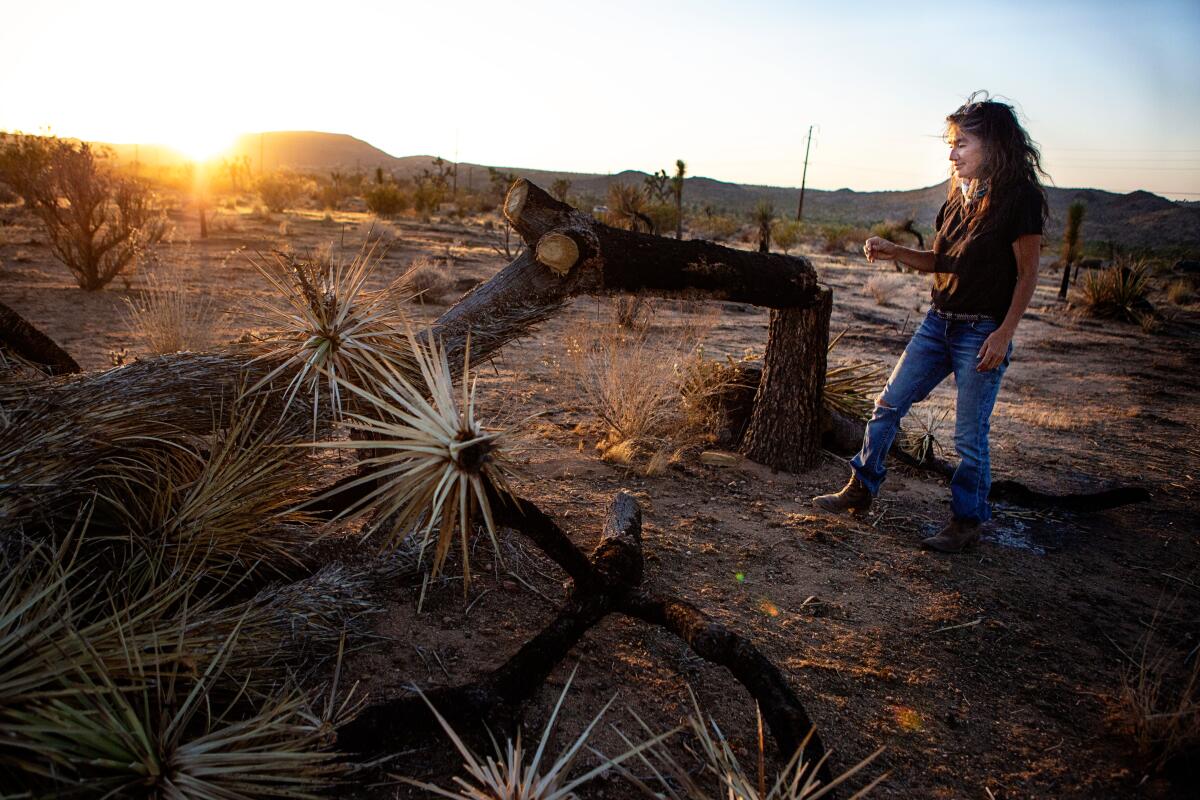
TOWN OF YUCCA VALLEY — To hear local leaders tell it, the proposed listing of western Joshua trees as an endangered species would be an economic catastrophe for the high desert Town of Yucca Valley.
It would place an onerous regulatory burden on property owners, they say, at a time when they are being pinched by declining revenue due to the COVID-19 pandemic and a state mandate to install a $375-million sewer system on parcels where the trees grow, as some residents put it, “like weeds.”
But state wildlife authorities have recommended that Joshua trees be considered for listing. The recommendation was based on a review of a petition submitted by the Center for Biological Diversity, which argues that the trees are facing the risk of extinction after years of development, drought and more frequent wildfires due to climate change.
And therein lies the pickle for the town of 21,000 residents along California 62 about 25 miles north of Palm Springs.
On Monday, Assemblyman Chad Mayes (I-Yucca Valley) added a new wrinkle to the controversy on behalf of his constituents: He introduced a hastily crafted emergency bill that would amend the California Endangered Species Act to make it easier to take a threatened or endangered species found to be causing significant economic hardship or impacting critical infrastructure such as a sewer system.
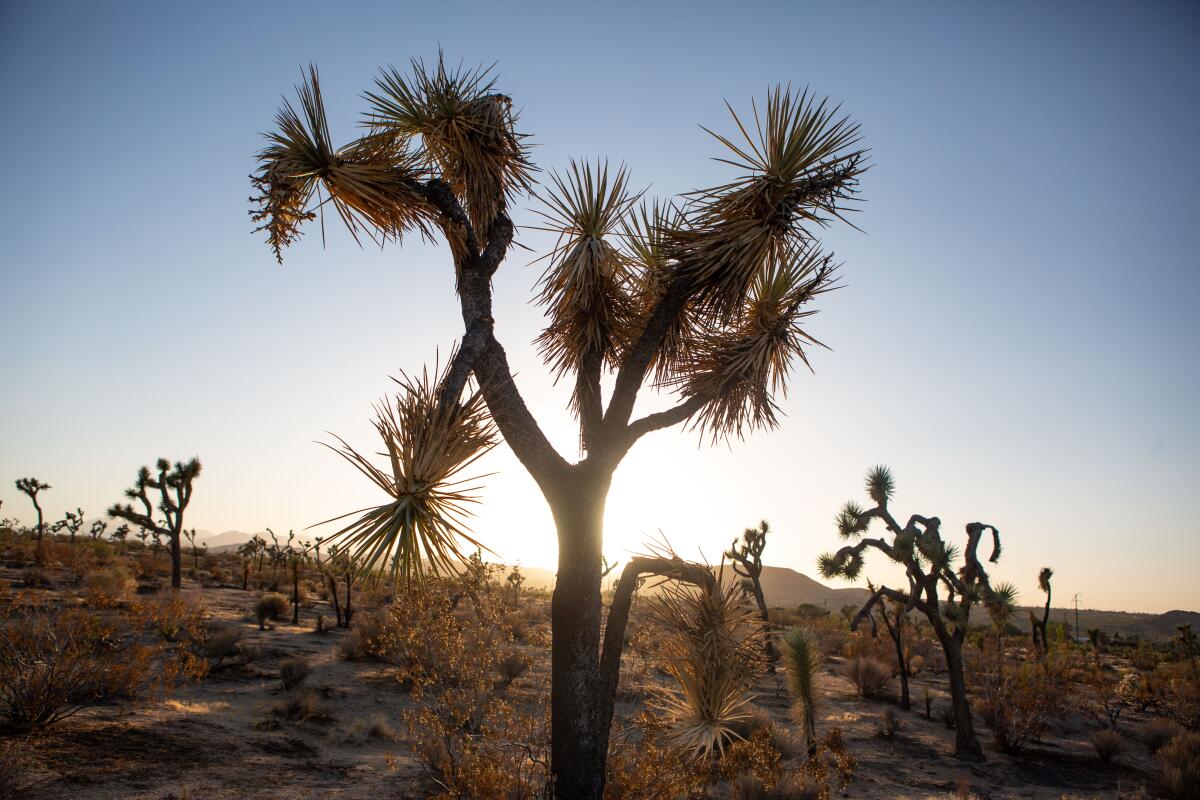
Mayes is especially interested in changing regulations that grant temporary protection to Joshua trees or any other species in the process of being considered for listing.
“If the tree is just a candidate for listing,” Mayes said in an interview, “it doesn’t seem fair to make our struggling desert communities pay a heavy price for the international problem of climate change.
“We are supposed to follow the best available science when it comes to climate change, which is a very real threat,” he added. “But if it poses a severe threat to a local economy, then it’s time for elected officials to step up and help out.”
To become law, however, his bill would require striking a compromise with environmentalists, then winning a two-thirds vote in the Senate and Assembly and the governor’s signature before this year’s legislative session adjourns on Aug. 31.
But environmentalists are vehemently opposed to the idea of attempting to hammer out fundamental changes to the state Endangered Species Act within a matter of weeks.
“This bill is a broad-brushed attack on one of California’s bedrock environmental laws,” said Brendan Cummings, conservation director of the Center for Biological Diversity and a resident of the nearby community of Joshua Tree. “It would apply to any future species that becomes a candidate for listing.”
“Beyond that, it is unnecessary,” he added. “That’s because there are mechanisms under existing law that would allow a property owner or any other entity to expeditiously find a pathway to permits needed for their projects to go forward with minimal modifications.”
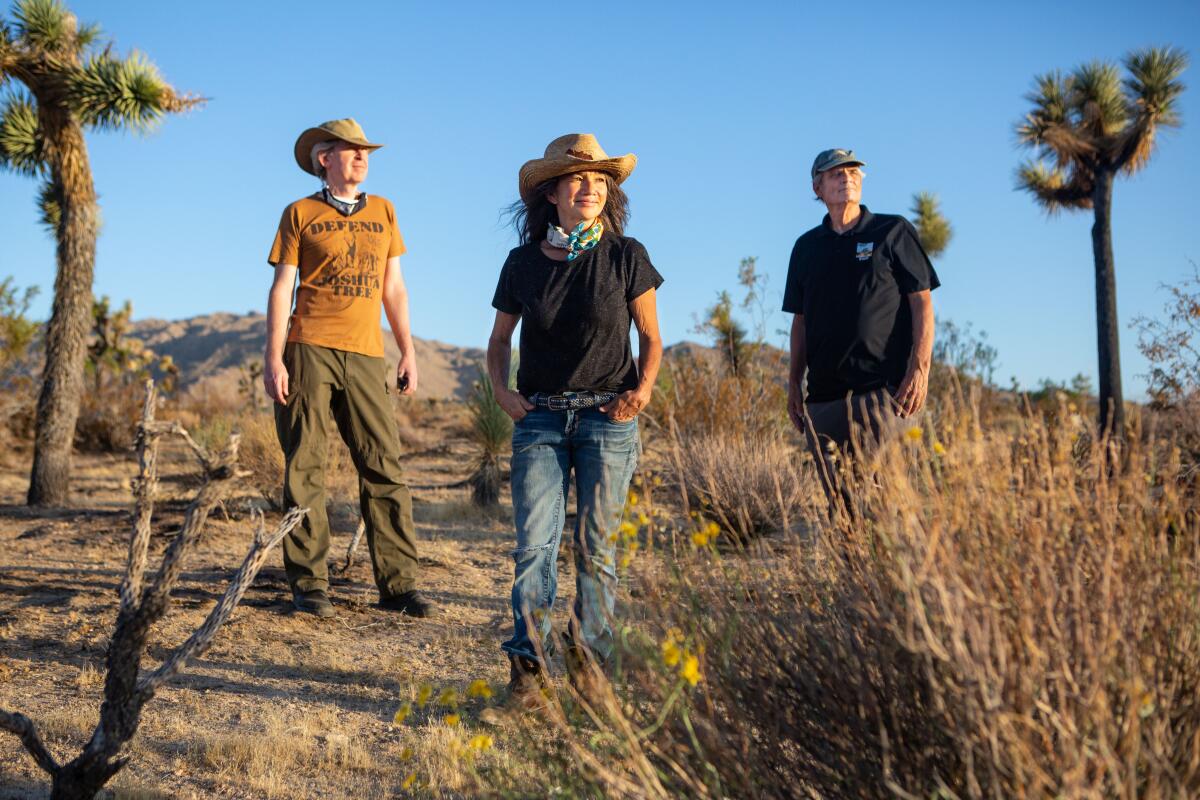
The California Fish and Game Commission on Aug. 20 is expected to decide whether to consider the center’s petition to list the trees.
A final decision by the five-member panel is expected sometime next year. If the trees are listed, the law requires state wildlife managers to devise a recovery plan for them, which could limit development across thousands of acres of Southern California’s desert real estate.
About 40% of the western Joshua tree’s range is on private land where state endangered species law would apply, according to the petition, and includes the cities of Palmdale, Lancaster, Hesperia, Victorville and Yucca Valley.
The Yucca Valley Town Council denounced the petition as overreach because the trees are already protected under many city and county ordinances, and within the nearby 800,000-acre Joshua Tree National Park.
Mayes said he worries whether “the sewer system project could be completed without taking out some of these Joshua trees.”
Then there’s Monica Zimarik, president of the Joshua Tree Gateway Assn. of Realtors, who warned in a widely published statement, “While the beautiful Joshua tree is our association’s namesake and we want to protect them for many generations — not at the expense of homeowner rights and future generations’ ability to purchase affordable housing.”
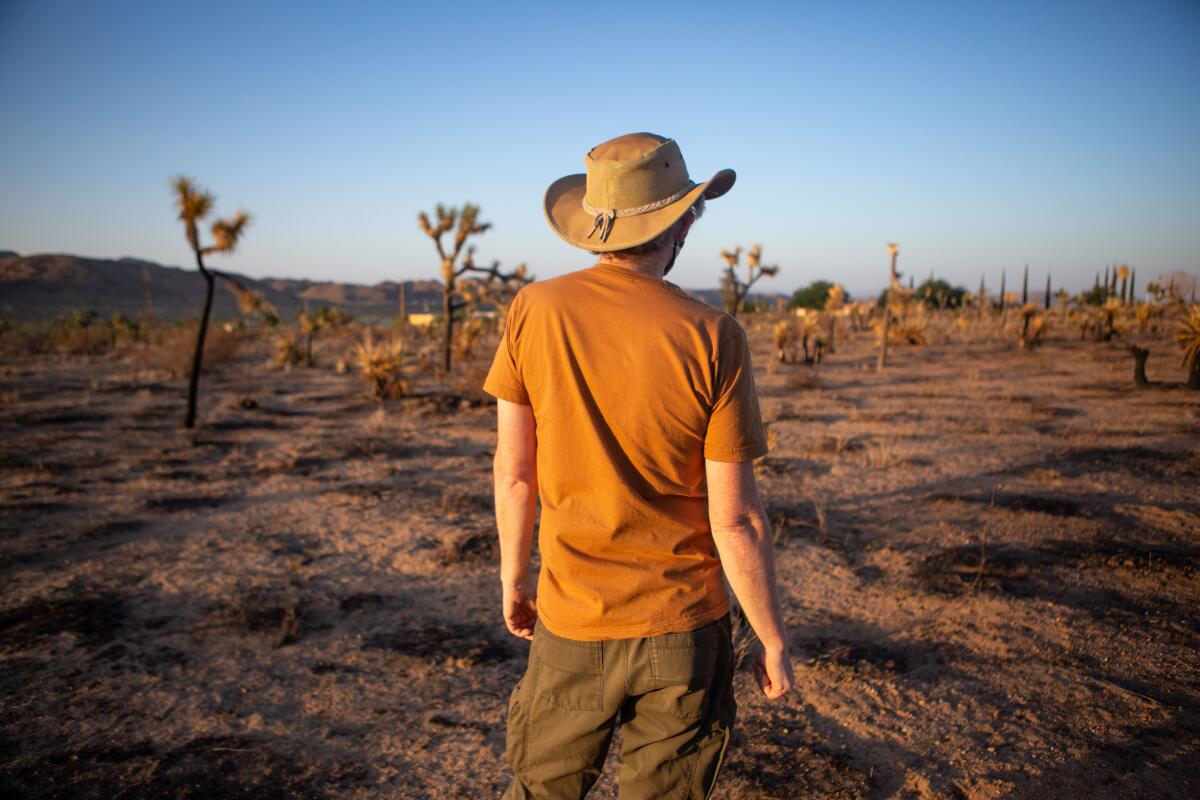
Environmentalists point out that recent scientific studies predict the trees could become functionally extinct in California by the end of the century.
The trees are failing to reproduce at hotter, drier lower elevations, scientists say. Prolonged droughts, which are expected to occur with greater frequency over the coming decades, will lead to higher death rates for mature trees. Exotic grasses feeding off nitrogen-laden smog wafting in from the Los Angeles area are leaving existing Joshua tree woodlands vulnerable to wildfires.
In May, a wind-driven wildfire believed triggered by a carelessly tossed cigarette burned more than a third of a prized 623-acre conservation area just east of Yucca Valley that is home to desert tortoises, prairie falcons, bobcats and 10,000 Joshua trees.
On a recent weekday morning, Cummings was among a group of environmentalists searching for signs of recovery amid hundreds of singed trees and splotches of charred cactus creosote bushes that covered the area like leopard spots.
“This land was once a flagship of conservation in this desert community,” he said. “Now, it is a heartbreaking reminder that Joshua trees can’t escape threats to their existence even in a protected area.”

